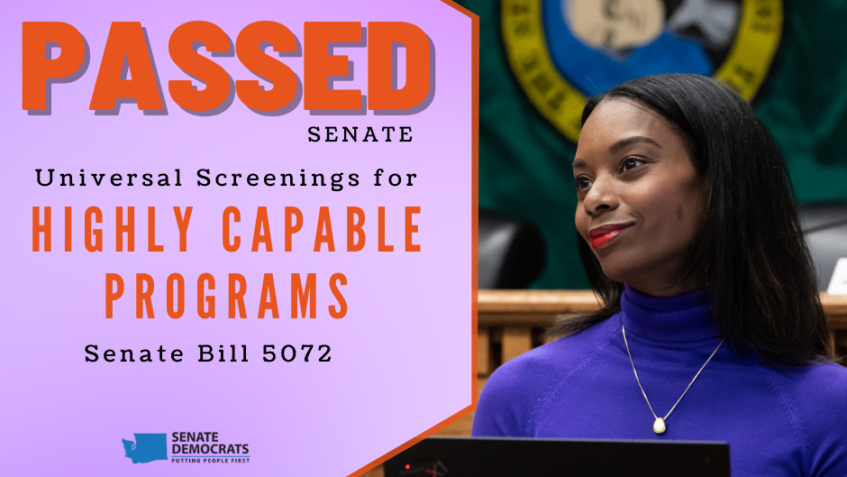Olympia– The Senate passed a measure, sponsored by state Sen. T’wina Nobles (D-Fircrest) which establishes new requirements that identify students who may be eligible for highly capable programs. Senate Bill 5072 requires school districts to conduct universal screenings once in or before second grade, and again in or before sixth grade.
“Highly capable programs provide accelerated learning and enhanced instruction for advanced students to keep them engaged and growing,” said Nobles. “But our Black, Latinx, Native, low-income, English learners, and students with disabilities are at risk of being left out. We need to break down the systemic barriers to education with appropriate pacing, depth, and complexity for children of high intelligence – who are present in every demographic group and in every zip code.”
Universal screening for all students ensures equitable access to the highly capable program and increases the likelihood that students from marginalized backgrounds get the supports they deserve. Districts that have implemented universal screenings have already seen major improvements for students of color and low-income students. Universal Screening has been tested in multiple districts across the state and of varying sizes: larger districts like Northshore, Kent, and Pasco; medium districts like Quincy and Sumner-Bonney Lake; and small districts like Rochester.
Highly capable programs have been a part of basic education in Washington since 2011. Past efforts have encouraged school districts to use multiple types of criteria for assessment to ensure low-income and diverse student populations are identified. This is the next step in making sure all students are screened. It is worth noting, universal screening does not need to include a new test. Districts can use existing data they already collect about students. The bill also requires OSPI to publish highly capable enrollment data per district broken down by demographic groups so that progress and accountability can be measured.
“We want to see the progress this legislation is making in action,” said Nobles. “When highly capable students don’t receive appropriate curriculum, they can misbehave, be mislabeled as needing special education, develop a poor work ethic, or disengage from school. Students deserve to learn in a supportive environment where all children can learn, grow, and thrive.”
The legislature considered a similar proposal last session in the form of HB 1611, which passed unanimously out of the House and the Senate Early Learning & K-12 Education Committee. It did not pass the Senate Rules committee.
This bill will now move to the House for consideration.

